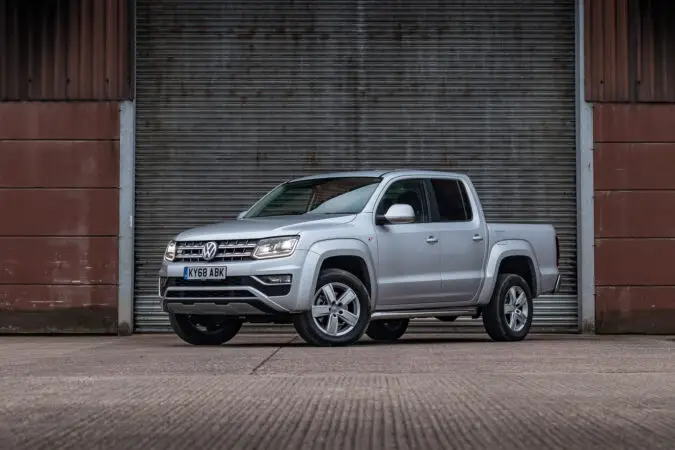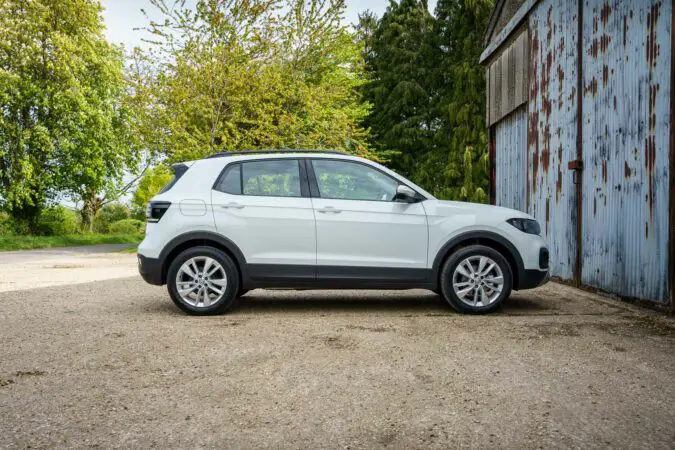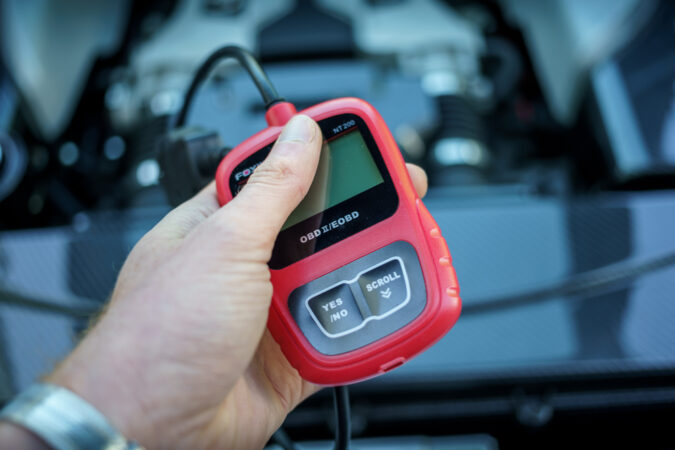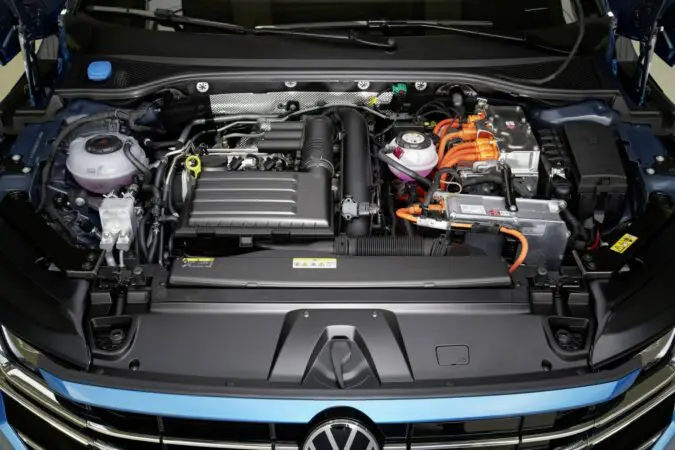Are you considering purchasing a new Volkswagen vehicle? Or perhaps you have a Volkswagen and are unsure of its expected lifespan. You may be asking yourself how long do VW last.
In order to provide you with information that will help us answer your query and other pertinent queries, we have done extensive study on this subject. So, let’s take a look at how long a typical Volkswagen might last…
- Volkswagen Golf
- Volkswagen Polo
- Volkswagens Reliability
- Factory Warranty
- Maintain And Repair
- Frequently Asked Questions
How Long Do VW Last
So, how long do VW last? In general, Volkswagen vehicles have a lifespan of about 150,000 miles when properly maintained. Because they are built better and require less maintenance, VW vehicles purchased today often last longer than VWs manufactured just 10 years ago.
Like other cars, you can only reach this mileage mark by continuing to take your car in for routine maintenance.
There are numerous models of the Volkswagen Passat automobiles, each constructed differently. The Passat automobiles aim to uphold the overall norm, but their specifications have been somewhat modified.
Since 1990, there have been more than ten different generations of Passat automobiles. They boast of being primarily sedans, minivans, wagons, and many more types of vehicles.
The upkeep of the engine is one aspect that impacts how long do VW last. Volkswagen Passats last as long as you take care of them.
The lifespan of Volkswagen vehicles has gradually risen over time. For instance, the average vehicle lifespan was 9.4 years in 2009; this grew to 10.8 years in 2013 as well as 11.4 years in 2015.
The average lifespan of an old Passat is 6.4 years, but the average engine lifespan of a new automobile is 10.5 years.
Therefore, if you take care of them, they can live to be really old.
How Long Do Volkswagen Golfs Last
If you are considering buying a Volkswagen Golf, we suggest that you examine the car’s current mileage, especially if it is a very used vehicle. Even if this is crucial, you should also consider how much you use the car.
Regarding durability, Volkswagen Golf is an established and long-lasting model.
For example, a 2001 Golf having 80,000 miles on it can still function with a further 50,000 miles.
The engine is getting close to its limits when you reach up to 1.5 million miles.
Volkswagen Golfs can last an average of 5 years before experiencing issues, and they can continue to function after replacing the timing belt and with regular engine maintenance.
How Long Do Volkswagen Polos Last
Volkswagen Polo is known for its comfy hatchbacks and dependability.
Despite the projected mileage, the actual mileage may vary depending on the driver, the state of the roads that you drive on, and the tire pressure.
Additionally, you may regulate how you use your air conditioner, gear, and accelerator to change the efficiency of your Volkswagen Polo.
Considering this mileage, we can confidently assert that the Volkswagen Polo lasts more than six years without any issues, even with the two-year warranty that the firm has given.
This is achievable with sufficient servicing.
Volkswagen Reliability
Talking about reliability, Volkswagens perform admirably, which helps explain their long average lifespan on the road. Volkswagen ranks 12th among 32 automobile brands on the road, according to repairpal.com. On the basis of a 3.5–5 rating, they are in the top half of vehicles even though they are not at the top.
When you put a VW on the highway, you should be ready for 0.5 trips to the mechanic every year. In 11% of these visits, be prepared to deal with a potentially serious repair. This probability is a little greater than what is ideal for a car.
Occasionally, fixing a Volkswagen can be expensive. Even so, the company does a respectable job of producing models that don’t malfunction frequently. If you own a Volkswagen, you are aware that with proper maintenance, your vehicle will last.
Most Reliable Volkswagen
If you have recently taken a keen interest in Volkswagens, the question on your mind is are they reliable, and if so which is the most reliable VW? Needless to say, not all VWs are created equal, you know, much like every other car model.
There are plenty of great options available today on the market if you’re looking to choose a Volkswagen as your next vehicle. Which Volkswagen model would be best for a new car? Which one ought you to pick?
The Volkswagen Golf is the most dependable car, according to data from copilotsearch.com. It rates a 4 to 5 on reliability but also has reasonable repair costs. It’s important to remember that this only applies to more recent models, not to older ones. These are less trustworthy.
Choose one of these solutions for your life if you want assurance that you’ve chosen a top-notch Volkswagen. How durable are Volkswagen vehicles? Your automobile is important. Let’s also examine some of the least desirable choices.
Least Reliable Volkswagen
Now that you know which Volkswagen is the most reliable, you now probably want to know which VW is the least reliable. Let’s take a look at the other end of the reliability spectrum to help answer this question.
Let’s keep something in mind first. When talking about Volkswagen cars, there are many outstanding options, but there are also a couple that isn’t so terrific. One may not have enough time to drive a car on the road if it isn’t very reliable. Additionally, it implies that you might eventually have to pay extra for repairs. The least dependable Volkswagen models are which ones?
Now to answer that all-important question. The Volkswagen Jetta, notably the 2006 model, has the lowest reliability ratings among all Volkswagens, claims themotordigest.com. This model was notorious for the number of internal problems, especially with pricey parts like the engine and transmission. Repairs may be expensive.
If you are wondering how long do VW last, then these won’t last for very long on the highway as you get used to the cars.
Avoid the aforementioned models if you want to be confident that your investment in a Volkswagen will last for many years into the future.
Is A Volkswagen Worth It
Yet another important question that many car buyers have especially when they are considering Volkswagen is whether it’s a good idea to invest their hard-earned money in a VW. For someone who has never owned or driven a VW before or even someone looking to get their first car, this question is not that surprising.
Is a Volkswagen therefore worthwhile? This kind doesn’t stay as long on the road as other manufacturers, but with regular maintenance, the top models can travel well over 200,000 miles. Should you still take into account other brands?
Volkswagen has experienced ups and downs throughout its history, but it has often shown that it is a top contender. They can choose from a wide range of trustworthy options and travel together.
Think about Volkswagen as an alternative if you’re looking for a well-established brand. There is much to enjoy about Volkswagen, from the current Golf model to the vintage Beetle.
Do Volkswagen Cars Last As Long As Other Cars
Still, on the matter of how long do VW last, Volkswagen vehicles do outlive other automobile brands, yes. They are of German quality, so if you take excellent care of them, you may anticipate them lasting for many years.
Whether you drive a VW Passat or even a VW Jetta, how you care for the engine will have a big impact on how long it lasts.
It is impossible to overstate the value of engines to vehicles. The majority of the time, failing to maintain an automobile causes it to break down; the same is true for Volkswagen vehicles.
Simply put, the longevity of your Volkswagen depends on how much you are willing to spend on maintenance.
All of Volkswagen’s vehicles come with an estimated 100,000-mile warranty.
Here are some pointers on how to surpass this mark.
How Long Do VW Last, Servicing Tips #1 – Maintaining A Clean Engine
This problem cannot be mentioned enough. Many people focus on servicing other components of the engine and forget to do the basic service of cleaning the engine and taking out the grime. There is a good reason why you should clean the grime off your engine.
This is because the likelihood of an engine malfunction increases with engine grime. Make sure to take your time to clean up any fluid spills on or around the engine, including oil stains (forcing you to figure out how to get oil stains off driveway, in addition to how to get motor oil out of clothes).
How Long Do VW Last, Servicing Tips #2 – Handle Repairs Immediately
The proverb “A stitch in time saves nine” is well known. This is the approach you ought to take when driving your Volkswagen. We encourage you to get a minor repair done on your car before the problem gets worse. You can be sure that doing this will help you get the most out of your car.
How Long Do VW Last, Servicing Tips #3 – Observe Your Vehicle
Volkswagen isn’t an exception; cars talk just as much as people do. It’s crucial to keep an eye out for any noises your car produces and to get it checked out right away. To determine the cause of the weird sound, take your car to repair.
How Long Do VW Last, Servicing Tips #4 – Routine Oil Changes
You prevent engine problems, make sure to often change the oil on your car. Your Volkswagen engine will operate less smoothly if you use bad oil.
How Long Do VW Last, Servicing Tips #5 – Keep Up With Maintenance Routine
How long do VW last and how can you help your car last longer? Establish a routine for car maintenance and stick to it. This will guarantee that your car lasts longer and travels more than 100,000 miles.
Volkswagen engines are also constructed using components that are designed to survive for the duration of the vehicle. Some components have been designed to deteriorate over time in order to be replaced.
Therefore, the response to the question: Will Volkswagen automobiles survive as long as the other cars?
Yes, Volkswagens will last as long as other vehicles do and even live longer than the legal limit when you give the engine extra attention.
Factory Warranty From Volkswagen
Everybody wants to gain the most value from their purchases, and this is especially true of car purchases. Because of this, auto manufacturers provide the finest warranties possible.
Volkswagen isn’t an exception, since they offer a strong warranty program to its consumers.
They provide coverage for roughly four different platforms. They consist of:
1. New Car Warranty
An extensive warranty package is provided when you purchase a new Volkswagen vehicle from an authorized dealer. Any fix or flaw within the first 3 years is covered by this.
The bundle for three years includes:
- 2 years of mileage assurance
- Warranty of one year/60,000 miles
When you purchase this guarantee of three years or 60,000 miles of coverage, terms and conditions apply.
2. Used Car Warranty
When you purchase a used car, Volkswagen offers a warranty that lasts at least a year. This is included in the Das WeltAuto warranty package to guarantee that, no matter your budget, you get the best.
When activated, the 12-month warranty is applicable to cars having at least 100,000 miles on them. The fact that this guarantee covers the costs of components and labor in particular is an added benefit.
Despite receiving a complete guarantee, some of your components might not be protected. The electrical and mechanical components of the vehicle may be considered covered parts.
The guarantee does not apply to all components.
They consist of:
- Routine maintenance on the body, like replacing seals or glasswork.
- Items including batteries, wheels, and cambelt timing are subject to wear and strain.
3. Extended Warranty
If the current warranty is about to expire, Volkswagen drivers can then buy an extended warranty plan.
You have the option to modify your warranty so that it covers more components for the full one-year period that you paid for. In addition to the superior component cover, Volkswagen repairers offer professional service.
You will understand this better because these skilled repairers are knowledgeable about Volkswagen cars.
You can choose between the named component protection and the all component cover thanks to the flexible warranties included in the extended warranty plan.
If you select the stated component cover, Volkswagen will pay for any necessary repairs and replacements.
4. Fleet Warranties
This warranty package is more intricate and specific.
Volkswagen provides this warranty when you purchase a fleet of vehicles, likely for use as corporate cars for workers, in order to support the efficient operation of your business.
Regardless of the mileage, a new car’s warranty will cover this for the initial two years after purchase.
After the 2 years have expired, your car is still eligible for third-year protection, especially if it hasn’t passed the required 60,000 miles.
If you attain this point, you can select to purchase any car warranty policy that suits you.
Are Volkswagen Cars Expensive To Maintain And Repair
When using a VW vehicle, like using other automobile types, you will have little and serious troubles to solve.
Whether it is a serious breakdown or normal service, one needs to always invest in the car.
Unfortunately, Volkswagen automobiles are costly to maintain and repair. This is a result of the utilization of premium German auto parts in its construction. However, if you regularly examine your vehicle and drive it carefully, you can avoid incurring this additional cost.
Volkswagen vehicles might consume more fuel than their rivals, which contributes to their high maintenance costs.
When driving a Volkswagen, you’ll notice that the car gets poor gas mileage. Consequently, you will have to pay extra for fuel.
However, there is a more luxurious and cost-effective way to experience your Volkswagen car.
These suggestions will assist in developing a clear maintenance schedule, helping you to save money.
How Long Do VW Last, Maintenance Schedule #1 – Replace Any Broken Parts
Volkswagen may experience wear and tear on certain important parts, just like every other car model. By swapping out these components at once, you can prevent further issues.
It might be the wheels, cambelt timing, brake discs, etc. It is better to address these car problems as soon as possible because they could worsen and cost you more money to fix.
How Long Do VW Last, Maintenance Schedule #2 – Evaluate Your Driving Technique
Volkswagen and other German auto brands are referred to as driver’s cars. Their effortless acceleration, precise steering, and refined handling contribute to this.
Unfortunately, there is frequent mishandling of the vehicles and they will experience some issues. This is why we encourage you to attempt to limit your excessively rough driving in order to lower maintenance costs.
How Long Do VW Last, Maintenance Schedule #3 – Check Your Engine
Your car’s engine is at its heart and needs regular maintenance. There is no question that your VW will start to perform worse over time if engine problems arise and there is no quick fix.
Setting up vehicle maintenance schedules and keeping appointments is one approach to achieving this.
To achieve the best results, you should also frequently change the lubricants in the engine.
If you follow the above instructions, you should have few or no problems, which will lower the cost of upkeep.
How Long Do VW Last, Maintenance Schedule #4 – How Durable Are Their Engines
Own a Volkswagen vehicle yourself? Or perhaps you want to purchase a Volkswagen and are unsure of how long the engine will endure. An engine’s lifespan often hinges on maintenance and frequent service.
The majority of Volkswagen engines in use today are built to last for more than 100,000 miles. This reveals why mileage is the primary consideration for determining an engine’s lifespan. To offer you a clear image of the Volkswagen engine’s lifespan, let’s examine it in detail.
How Long Do VW Last, Maintenance Schedule #5 – What Is Its Lifespan?
The solution is both straightforward and intricate: Everything boils down to engine components. You handle the engine like you would like to be treated. If you take care of your engine properly, you won’t have to worry about how long do VW last.
If you regularly take your car in for maintenance, pay attention to any repair notifications, and treat it with care, it could survive 200,000 miles or longer. No matter the model of the engine, there really is no assurance that it will last a lifetime. The best thing you can do is to properly maintain and service it.
The VW engine comprises a number of intricate pieces that require high-level care and functionality to achieve lifespan. These components help to increase your engine’s efficiency. If an engine component breaks down, you must repair it right away to avoid ruining the entire engine.
Furthermore, replacing broken engine components is neither a simple nor inexpensive process; the cost of the labor alone can range between $1,000 to $1,800. The owner may need to think again about getting a new machine because of a broken engine part. The decision is typically based on the vehicle’s utility and financial worth.
However, there are some issues that routine engine care and maintenance cannot resolve. We have no control over the usual issues that arise on diesel but also DSG engines. On the other hand, spark plugs, regular filters, and oil changes might help a lot.
So how long is the lifespan of a Volkswagen engine? So if you buy a car with a good engine, it’s your responsibility to ensure it lasts as long as the manufacturer intended it to last, if not longer.
Frequently Asked Questions
Are Volkswagens Reliable
Each brand is given an average dependability rating in the most recent 2021 Consumer Reports evaluations, and Volkswagen received a rather high-reliability rating. The company received a score of 36, placing it in 24th place overall.
How Many Miles On A Car Is Bad
How many miles are too many for a car? Typically, most cars start to really deteriorate at roughly 150,000 miles. If a car travels more than 200,000 miles, it is rare and has exceptional longevity.
How Long Do Cars Last
How long does the average car last? The lifespan of a vehicle was substantially shorter in the past than it is now. A typical car should now last for roughly 12 years or 200,000 miles. Electric cars, for example, are more advanced and can reach 300,000 miles.





